We often think of hair care as an outside job—buying the right products, using heat protectants, deep-conditioning on Sundays.
But what if your hair issues aren’t about your strands at all?
What if they’re coming from your scalp, your hormones, your gut, or your stress levels?
Hair isn’t just cosmetic. It’s a reflection of your internal health—and when it starts thinning, falling out, or losing shine, your body is whispering, “Look deeper.”
1. The Scalp: Your Skin's Forgotten Terrain
The scalp is an extension of your skin—but most of us treat it like an afterthought.
Here’s why the scalp matters:
- It contains over 100,000 hair follicles, each with its own micro-environment.
- Scalp health affects blood flow, oil balance, inflammation, and ultimately hair growth.
- A congested, flaky, or overly oily scalp can suffocate follicles, trigger dandruff, and stall growth.
Scalp Health Tips:
- Exfoliate weekly with a gentle scalp scrub or natural acids (like apple cider vinegar)
- Massage daily to stimulate blood flow (5 minutes with fingertips or a scalp brush)
- Avoid harsh surfactants (like sodium lauryl sulfate) that strip natural oils
- Use rosemary oil, a clinically-backed natural DHT blocker, to support regrowth
2. Nutrition: Hair is Made of What You Eat
Hair is non-essential tissue. When nutrients are low, your body will prioritise vital organs over hair follicles.
Key Nutrients for Hair Growth:
- Protein: Hair is made of keratin, a protein. Inadequate intake = brittle, slow-growing strands.
- Iron: Low ferritin (stored iron) is a major contributor to female hair loss.
- Zinc & selenium: Support follicle regeneration and scalp integrity.
- Biotin: Needed for keratin production—but deficiency is rare unless gut health is impaired.
- Omega-3s: Reduce scalp inflammation and improve hair shine and elasticity.
- Vitamin D: Often low in those with alopecia or chronic hair shedding.
Food First:
- Eggs, wild salmon, pumpkin seeds, lentils, spinach, seaweed, walnuts, and bone broth.
Supplement only when necessary, and always test your iron, zinc, and vitamin D levels before self-prescribing.
3. Hormones: The Hidden Hair Saboteurs
Hormones have a huge influence on hair texture, thickness, and growth cycles.
Hormonal Imbalances That Impact Hair:
- High androgens (DHT): Leads to hair thinning at the temples or crown (common in PCOS and perimenopause).
- Low thyroid function: Causes dry, thinning hair, slow regrowth, and outer brow loss.
- High cortisol (stress hormone): Triggers telogen effluvium (delayed hair shedding 3–6 months after stress).
- Estrogen drop: Common after pregnancy, during menopause, or with pill withdrawal—can cause dramatic shedding.
If your hair loss came after a hormonal shift, test your hormones—especially thyroid (TSH, T3, T4), DHEA-S, testosterone, and estrogen/progesterone ratios.
4. Stress: The Most Underestimated Root Cause
You can eat perfectly and use natural products, but if you’re in a constant state of fight-or-flight, your hair will feel it.
How stress affects hair:
- It shuts down digestion, reducing nutrient absorption.
- It raises cortisol, which shortens the growth phase of the hair cycle.
- It can trigger autoimmune conditions like alopecia areata.
Support your nervous system with:
- Magnesium glycinate
- Ashwagandha
- Deep sleep (7–9 hours)
- Breathwork and nervous system regulation
5. Gut Health: The Hidden Root of Great Hair
We’ve talked about scalp health, nutrition, hormones, and stress. But here’s a truth few people realise:
Your gut might be the most important organ for your hair.
Why? Because your hair can’t grow what your gut can’t absorb.
When your gut is inflamed, imbalanced, or “leaky,” your body struggles to absorb critical nutrients—even if your diet is flawless. It’s like pouring premium fuel into a car with a clogged engine. The hair simply won’t get the building blocks it needs.
How Gut Health Affects Your Hair:
-
Nutrient Absorption: Iron, zinc, biotin, amino acids, and antioxidants—all crucial for hair—rely on a healthy gut lining for absorption.
-
Inflammation: An imbalanced gut microbiome can trigger chronic inflammation, which floods the body with stress signals that push hair follicles into the resting (shedding) phase.
-
Hormone Regulation: Your gut helps metabolise hormones like estrogen, cortisol, and thyroid hormones—all deeply tied to hair health.
-
Stress & Immunity: Over 70% of your immune system lives in the gut. A stressed gut can contribute to autoimmune hair loss conditions like alopecia areata.
If you’re dealing with:
-
Bloating
-
Food sensitivities
-
IBS or constipation
-
Fatigue or brain fog
…and also struggling with hair loss, your gut is calling for attention.
Feeding Your Gut — And Your Hair
So, how do you nourish your hair from the inside out—starting with your gut?
Diverse Fibre Intake: Feed your gut bacteria with prebiotic fibres from veggies, legumes, and whole grains. More good bacteria = better nutrient absorption and less inflammation.
Fermented Foods: Yogurt, kefir, kimchi, sauerkraut, and miso help populate your gut with beneficial microbes like Bifidobacterium and Lactobacillus species. Though for specific strains like Lactobacillus reuteri—which has been linked to hair benefits—consider targeted supplements.
Short-Chain Fatty Acids (SCFAs): Your gut bacteria ferment fibre into SCFAs, like butyrate, which calm inflammation and support gut lining integrity—a crucial step for hair health.
Anti-Inflammatory Nutrients: Moringa, Omega-3s, curcumin, and polyphenols help tame gut-driven inflammation that could otherwise fuel hair shedding.
Bottom Line: Hair Is a Messenger
If your hair is falling out, thinning, or dull—it’s not a vanity issue. It’s a signpost. One that’s often pointing toward nutrient depletion, hormonal imbalance, chronic stress, or inflammation.
Rather than chasing miracle shampoos, start with your roots—literally and metaphorically.
Hair Food為您的健康和保健提供強大的補充劑。 立即訂購 |
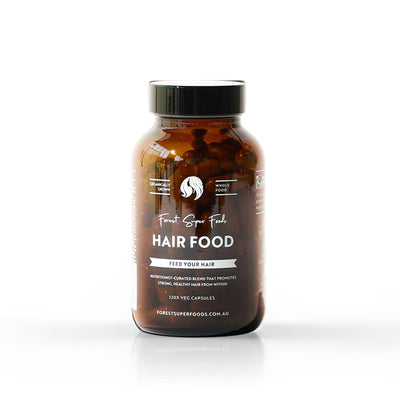
|
常見問題
Ashwagandha 對身體有什麼功效?
Ashwagandha 是一種傳統的適應原,以幫助身體管理壓力而聞名。它可以幫助平衡荷爾蒙、改善能量水平、減少焦慮和提高睡眠品質。有些研究也顯示 Ashwagandha 對大腦功能、耐力和免疫力有幫助。
Ashwagandha 是否允許在澳洲使用?
是的,Ashwagandha 獲准在澳洲作為營養補充品的列名成分使用和銷售。在 Forest Super Foods,我們確保我們的 Ashwagandha 是 100% 有機且符合澳洲標準和法規。
如果每天服用 Ashwagandha 會怎樣?
許多人每天服用 Ashwagandha 來長期緩解壓力、改善情緒和睡眠。大多數的好處都是在數週內逐漸發現的。請務必依照建議劑量服用,如果您正在服藥或正在處理健康問題,請諮詢專業醫護人員。
Ashwagandha 有副作用嗎?
Ashwagandha 一般耐受性良好,但在某些情況下,可能會引起消化不適、嗜睡或荷爾蒙影響。懷孕期間不建議使用,患有甲狀腺疾病或自體免疫失調的人應該先諮詢醫生。
Ashwagandha 會讓您昏昏欲睡嗎?
Ashwagandha 不像是鎮靜劑,但它可以促進放鬆,並有助於減少過度活躍的壓力反應。這種鎮靜效果可讓您在晚上睡得更深,而不會造成白天昏昏欲睡。
Ashwagandha 需要多久才會生效?
大多數人在持續使用 2 到 4 週之內就會開始察覺到效果。不過,這會因您的健康狀況、用量和使用目的 (例如:壓力、睡眠、能量或荷爾蒙) 而異。
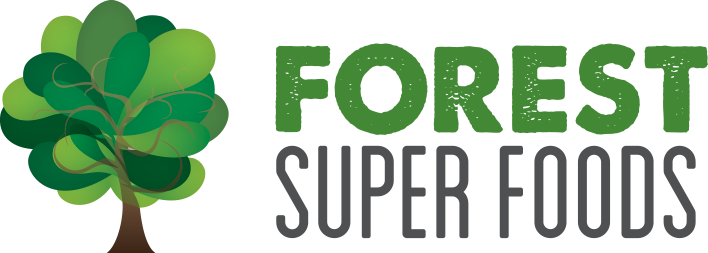



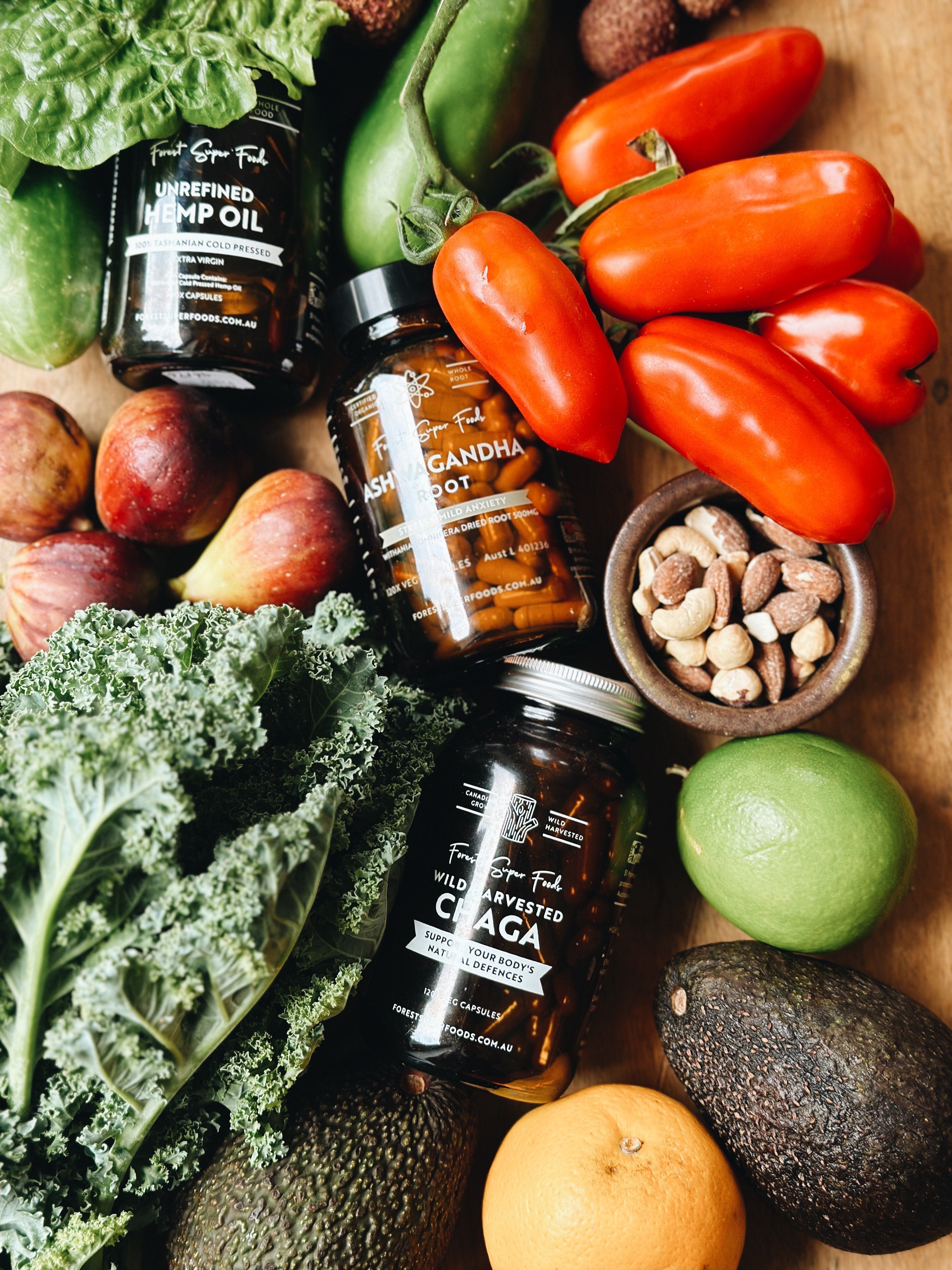

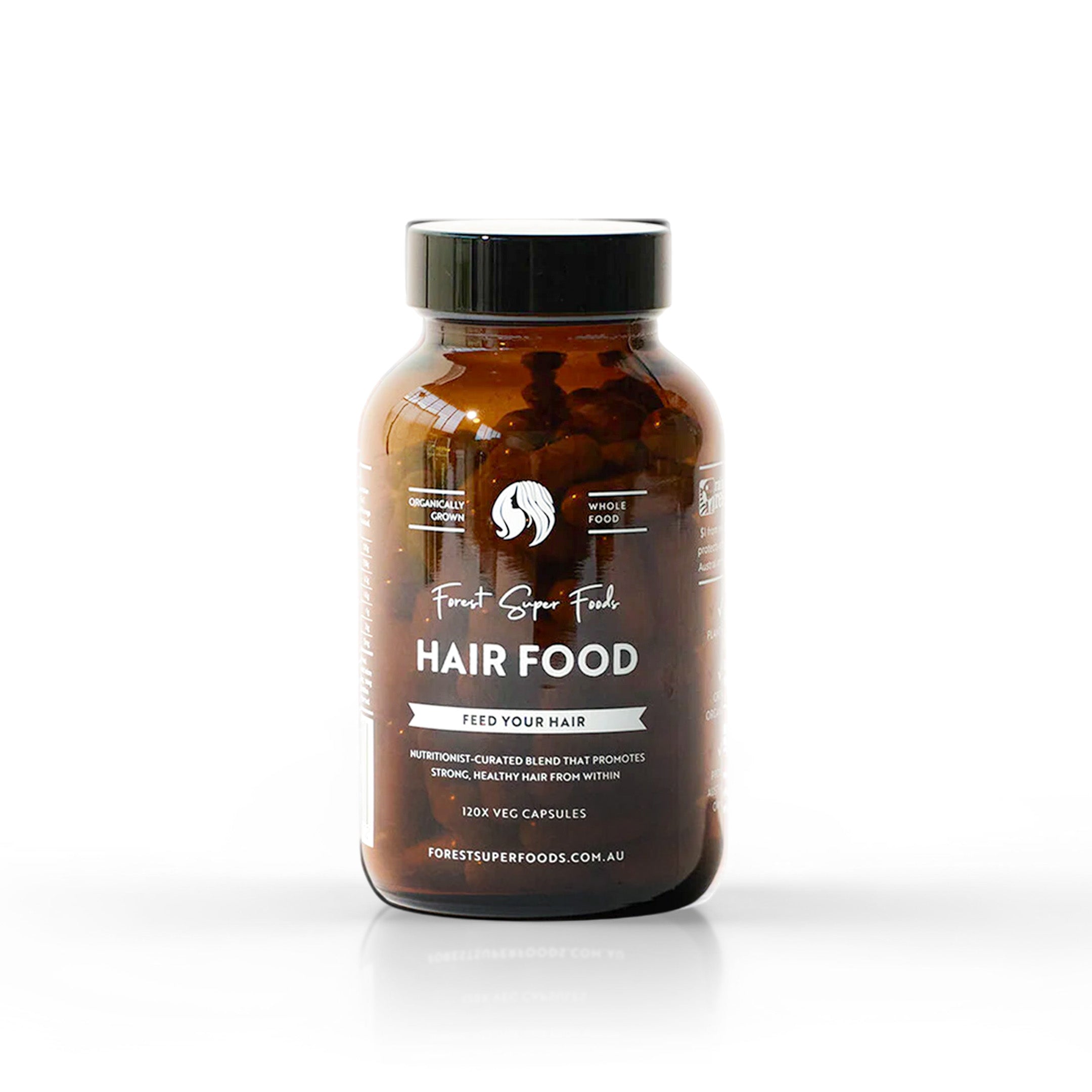

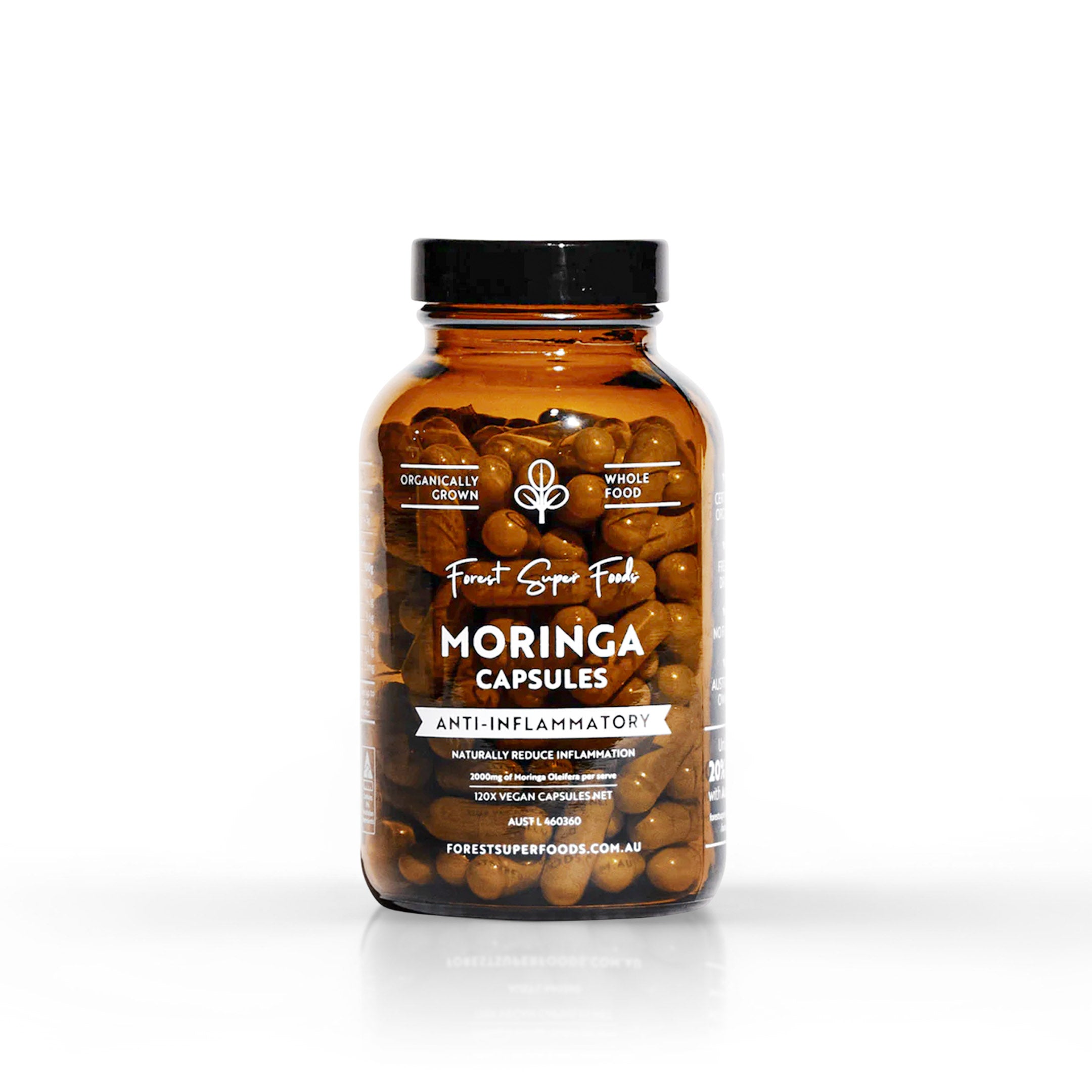
發表評論
所有評論在發表前都經過審查。
本網站受 hCaptcha 保護,並適用 hCaptcha隱私權政策 和服務條款。